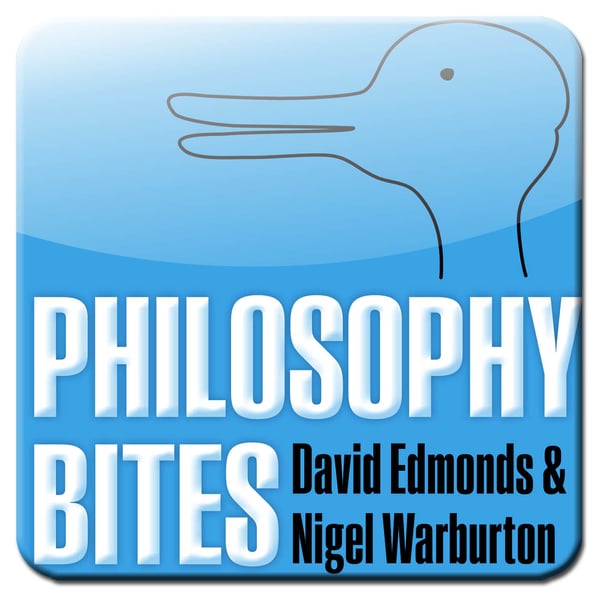Peter Adamson on Plotinus on Evil
Philosophy Bites
Nigel Warburton
4.6 • 2K Ratings
🗓️ 20 July 2008
⏱️ 15 minutes
🧾️ Download transcript
Summary
Transcript
Click on a timestamp to play from that location
| 0:00.0 | This is philosophy bites with me David Edmonds and me Nigel War Burton. |
| 0:07.0 | Philosophy bites is available at |
| 0:08.6 | www philosophy bites.com Plato Aristotle, then forward 700 years to St. Augustine. |
| 0:16.9 | That would be the standard hop, skip and jump through the history of philosophy. |
| 0:21.4 | In fact there were several important figures in between. One such was Platinus. A little is known about him. He was born in Egypt, he studied in Alexandria, he spent most of his last years in Rome. He was at various times a |
| 0:34.7 | student, a soldier, a teacher. Augustine would be heavily influenced by him. |
| 0:38.8 | One of the issues Platinus grapples with is the problem of evil. But as Peter Adamson of King's College |
| 0:45.6 | London explains, Plutinus's problem of evil was not exactly the same as the one that exercises |
| 0:51.6 | theologians today. |
| 0:53.0 | Peter Adamson, welcome to Philosophy Bites. |
| 0:56.0 | Hello, it's nice to be back. |
| 0:58.0 | The topic we're going to focus on today is Platinous, but specifically Platinous on evil. But before we get into that, could you just say a little bit about who Platinus was? |
| 1:06.0 | Sure, Platinus is a third century philosopher, third century AD, and he's the founder of a school of thought called Neoplatinism. |
| 1:15.0 | Platonis is probably the most important ancient philosopher other than Plato and Aristotle, |
| 1:20.0 | in part because Neoplatinism is the dominant way of doing philosophy in the late ancient worlds. |
| 1:24.8 | But what was Neoplatinism? It sounds like it's just a new kind of platinism. |
| 1:29.7 | That's right, and that's why modern scholars have described him as a neo-Platinist but he would not have described himself that way |
| 1:35.4 | He would have just said he was a plate-nist and he would have said that his philosophy was explaining the philosophy of Plato |
| 1:42.2 | But a lot has happened between Plato and Plutinas, Aristotle, |
| 1:46.2 | the Hellenistic schools like the Stoics and the Epicureans to whom he's responding. |
| 1:50.7 | So one of the reasons is different is because he's woven other philosophical elements into a platonic system. |
| 1:57.0 | Perhaps the most distinctive thing about Plato's metaphysics was his notion of the forms. |
... |
Please login to see the full transcript.
Disclaimer: The podcast and artwork embedded on this page are from Nigel Warburton, and are the property of its owner and not affiliated with or endorsed by Tapesearch.
Generated transcripts are the property of Nigel Warburton and are distributed freely under the Fair Use doctrine. Transcripts generated by Tapesearch are not guaranteed to be accurate.
Copyright © Tapesearch 2025.

